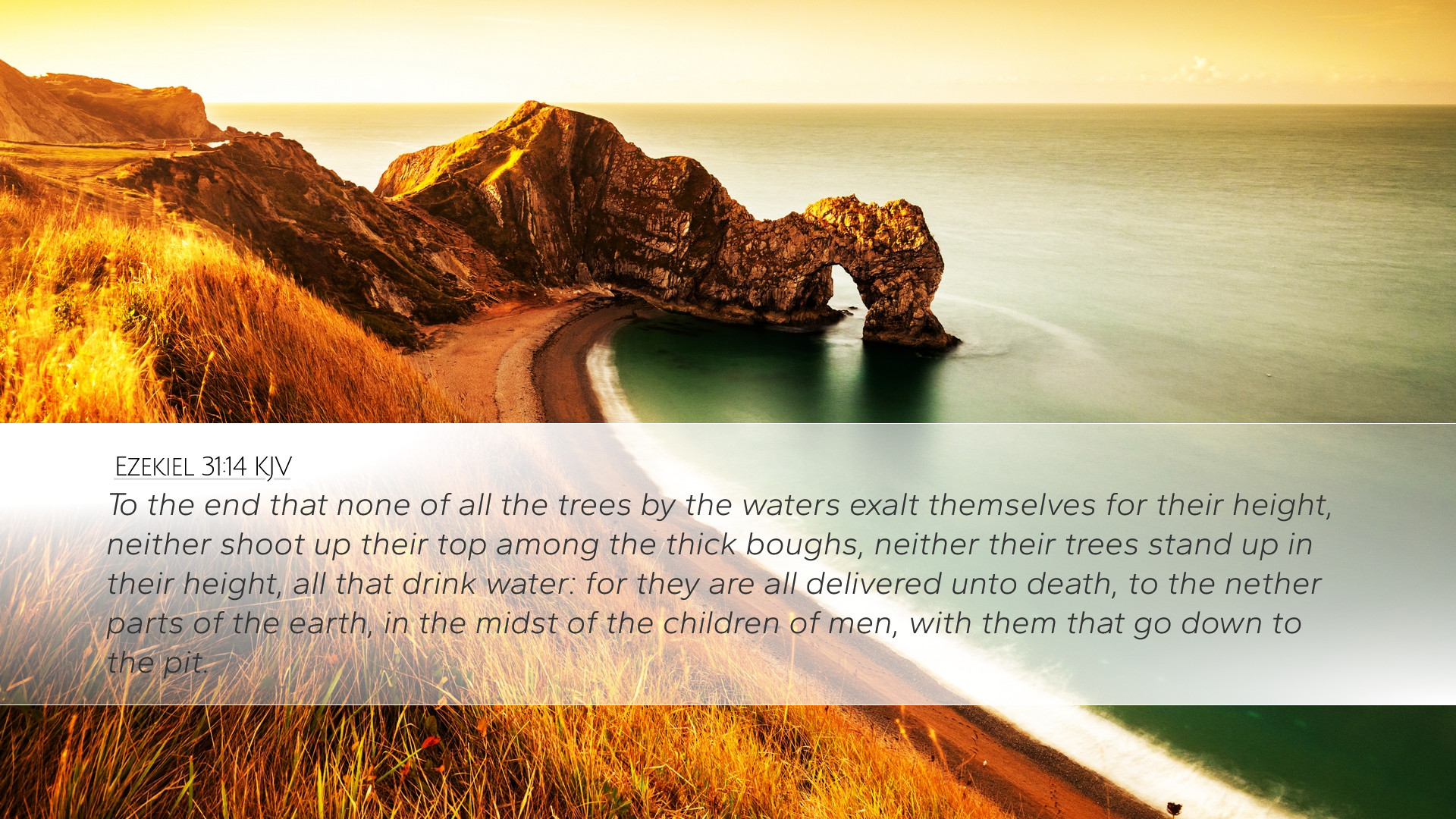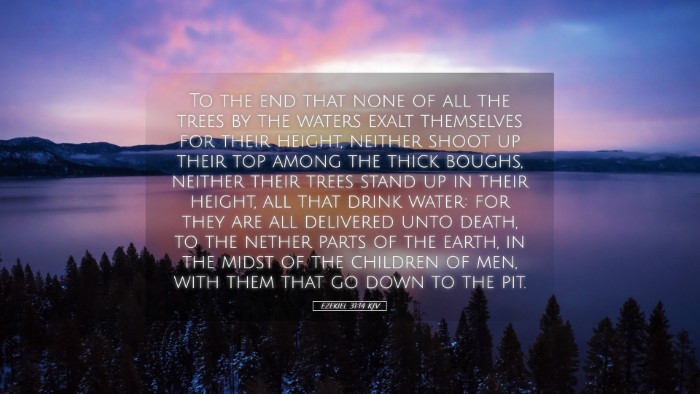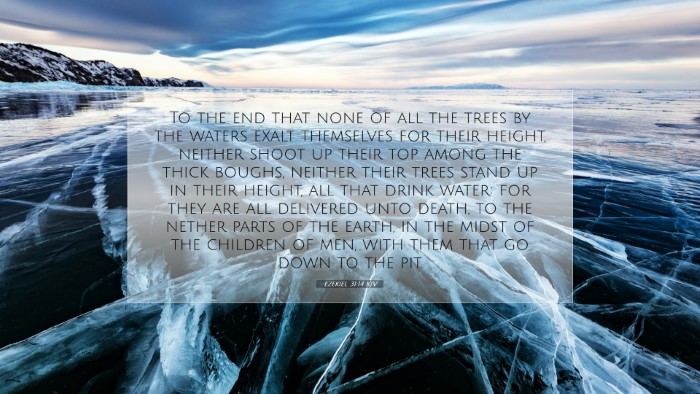Ezekiel 31:14 - Commentary Summary
Bible Verse: "All the trees of the field shall know that I am the Lord: I bring down the high tree, and exalt the low tree; I dry up the green tree, and make the dry tree to flourish: I the Lord have spoken and have done it." (Ezekiel 31:14)
Contextual Background
Ezekiel's Prophetic Ministry: The Book of Ezekiel is a profound prophetic work that addresses the impending judgment and eventual restoration of Israel. Ezekiel's prophecies often utilize vivid imagery and metaphors to convey spiritual truths, as exemplified in Chapter 31, which speaks about the Assyrian Empire in a metaphorical manner as a grand tree.
Thematic Insights
- Divine Sovereignty: This verse emphasizes God's ultimate authority over kingdoms and nations, symbolized through the trees. The Lord brings down the high tree, which may represent prideful nations, while He can uplift the low, symbolizing humility and restoration.
- Judgment and Restoration: The imagery of the drying up of the green tree portrays judgment, while the flourishing of the dry tree suggests God's ability to bring life from death, indicating hope for the repentant.
Commentary Insights
Matthew Henry’s Perspective
Matthew Henry notes that this verse encapsulates the principle that God acts according to His sovereign will—raising up the humble and casting down the proud. He emphasizes the dual nature of God's actions: bringing about destruction for those who exalt themselves while showing mercy and regeneration to the humbled. Henry underlines that God’s judgments serve as profound lessons for the nations, ensuring that all, like the trees, recognize His power and authority.
Albert Barnes’ Observations
Albert Barnes elaborates on the allegorical symbolism of the trees in this passage. He interprets the "high tree" as an emblem of pride and arrogance, likely referring to nations that have grown powerful and self-reliant. Conversely, he sees the "low tree" as indicative of those who, though seemingly insignificant, are under God’s watchful care. Barnes emphasizes that God's purpose through this judgment is to reveal His glory to all, ensuring that both the proud and the humble acknowledge Him as the sovereign Lord.
Adam Clarke’s Interpretation
Adam Clarke provides a detailed analysis of the implications of God’s interaction with nations represented as trees. He points out that the drying up of green trees may symbolize a spiritual barrenness that occurs when nations turn away from God. Clarke exhorts readers to see the ongoing relevance of this scripture today, emphasizing that God continuously works to bring believers back to life through repentance, even from their most desolate states. His reflections encourage a posture of humility before God's majestic authority.
Theological Implications
Across these commentaries, several theological implications arise:
- The Nature of God’s Authority: The sovereignty of God is paramount; He exercises control over all creation, determining who rises and falls.
- Human Pride and Humility: There is a strong warning against pride; nations, as well as individuals, must remain humble before God or risk divine judgment.
- Hope in Restoration: The message of hope is evident; those who find themselves in despair have the assurance of God's power to restore and uplift.
Practical Applications
For pastors, students, theologians, and Bible scholars, the learning from this verse can be profound:
- Preaching on Humility: Sermons can focus on the dangers of pride, using this passage to highlight the need for humility before God.
- Encouragement for the Weary: Practical teachings can emphasize God’s capability to bring life to the spiritually dry, encouraging congregants who feel desolate or abandoned.
- Warnings to Nations: Applying this verse to contemporary nations serves as a reminder of God’s sovereignty over earthly powers and the importance of turning to Him.
Conclusion
In summary, Ezekiel 31:14 serves as a powerful reminder of God's sovereign authority and the consistent theme of judgment followed by restoration throughout Scripture. Through the enlightening insights of Matthew Henry, Albert Barnes, and Adam Clarke, readers are encouraged to reflect on their relationship with God, recognizing His power to enact both judgment and revival. This commentary offers a well-rounded perspective for those seeking deeper understanding and application of biblical teachings in today’s context.


